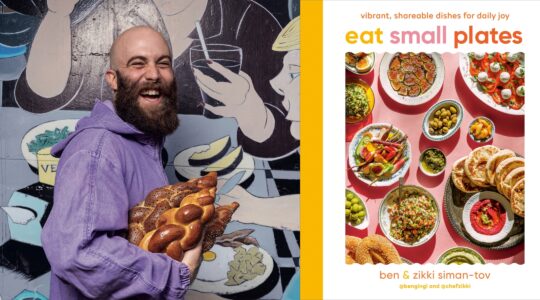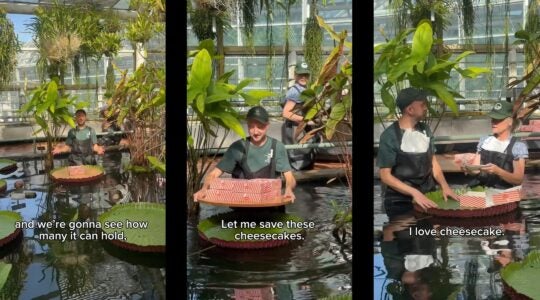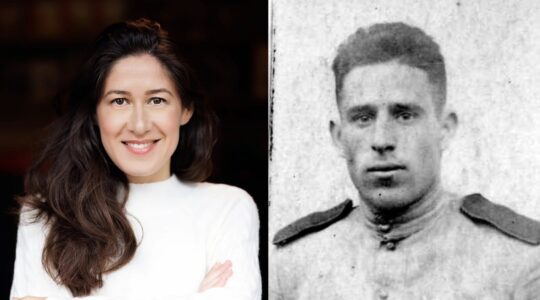The month of December is filled with holiday cheer, regardless of what you choose to celebrate. Each holiday comes with unique customs, and over the years these important elements have marked signified that particular holiday. For example, on Chanukah, we light a menorah for eight days, exchange gifts and spin dreidels. On Christmas, people put presents under a decorated Christmas tree, go caroling around the neighborhood and put up lights around their houses.
However, this division of key holiday characteristics has not remained so split over the years. Due to assimilation and influence of a large American Christian population — about 90 percent of Americans celebrate Christmas — some American Jews have adopted Christmas customs and applied them to Chanukah. One of these customs is the Chanukah bush; some Jewish families have begun to put trees in their homes and, instead of decorating them with Christmas ornaments, the trees are adorned with Chanukah related decorations, such as blue and white lights or ribbon.
This has created great controversy in Jewish communities, as Christmas trees are normally used for purposes that contradict Jewish belief. Rabbi Shmuel Kogan says that the practice of a Chanukah bush is foolish and there is no reason for it, stating that, “In most cases, such practices stem from ignorance of Jewish tradition.” That said, even some conservative rabbis disagree with him. One of these rabbis is Rabbi Joshua Davidson of New York City’s Temple Emanu-el, who says that “[Jews who have Hanukkah bushes] still identify as Jewish. They consider [the bush] a symbol of a festive time of year, which it has become. You just need to try to draw the distinction between what they [Christians] are celebrating and what we [Jews] are celebrating.”
Seeing the great debate over the Chanukah bush has inspired me to conduct a survey in my school, the Yeshivah of Flatbush Joel Braverman High School in Brooklyn. I set out to get the opinions of Jewish students and teachers on whether or not they think the Chanukah bush is kosher. Out of the 120 people I asked, the majority being students, about 80 percent of respondent said it shouldn’t be allowed in the execution of a traditional Chanukah. Among the people who said it should not be allowed, there was a common theme: they thought that it shouldn’t be allowed because it is a copy of a Christmas tradition and has no relation or connection to Chanukah.
“It’s taking something that’s not Jewish and making it Jewish,” said Perry Sanders, a senior. “It shouldn’t be allowed because it dilutes the true essence of Chanukah and Judaism as a whole.”
There were few people who disagreed with Sanders, believing that it is being done in a way that is Jewish, not referencing Christmas in any way. “A Chanukah bush is similar to gifting,” explained junior Isaac Levy, in reference to the gifts that many Jewish families give each other on Chanukah. “Gifting isn’t part of the Halacha, but we do it anyways. Using this logic, we should not be gifting during Chanukah. Therefore, if we gift, we should also be allowed to have a Chanukah bush because they are both adopted from a different religion.” Faculty advisor Janet Schrem agreed with Levy, “A lot of what we do adapts different things from different cultures, why is this any different? It is being done in the spirit of Chanukah, not Christmas.”
To be fair, Levy and Schrem are correct. Practices such as dressing up on Purim, giving gifts on Chanukah and more have been adapted from other cultures due to assimilation. But, does this justify the Chanukah bush tradition?
The dispute of whether or not it should be allowed is discussed by all Jews, ranging from great rabbis to high school students. But, the argument has yet to be settled. Every person has different morality and degree of religious devotion. More realistically, it is up to each Jewish family to decide if they adopt the tradition of the Chanukah bush.
Joanie Dweck is a sophomore at Yeshiva Of Flatbush. She is a Staff Writer for Fresh Ink for Teens.
The New York Jewish Week brings you the stories behind the headlines, keeping you connected to Jewish life in New York. Help sustain the reporting you trust by donating today.




